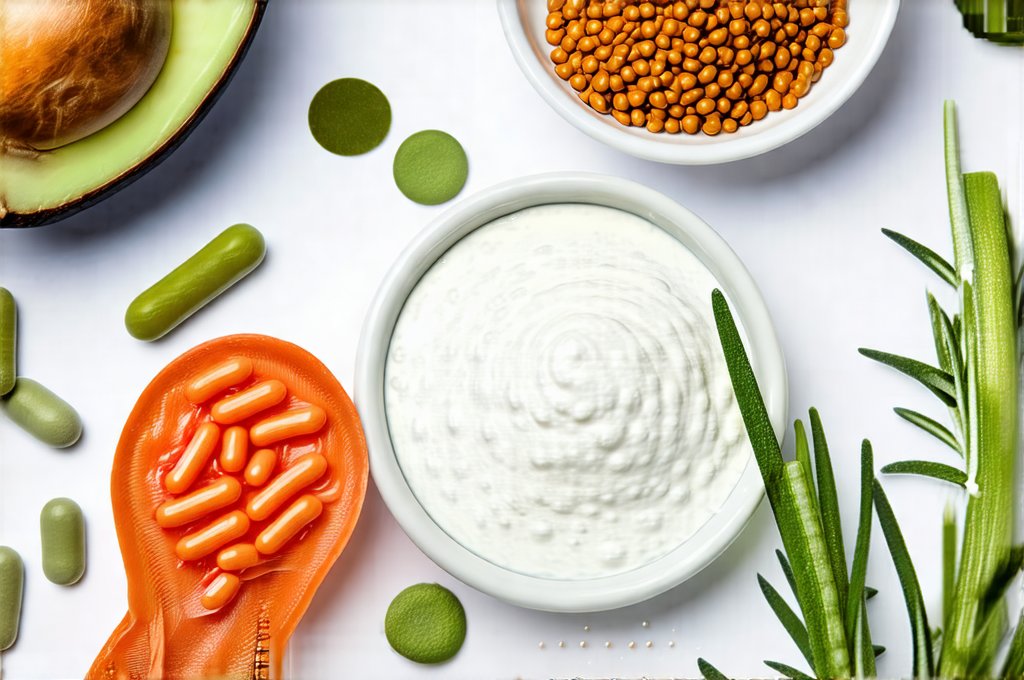Food sensitivities are increasingly common, impacting millions worldwide with symptoms ranging from mild discomfort to debilitating reactions. Unlike food allergies, which involve an immune system response, food sensitivities typically manifest as digestive issues – bloating, gas, diarrhea, constipation – alongside other non-immune related symptoms like headaches, skin rashes, or fatigue. Identifying the culprit foods can be a complex and frustrating process, often requiring elimination diets and meticulous tracking. While many approaches exist for managing these sensitivities, interest in the gut microbiome and its potential role in alleviating symptoms is rapidly growing. This is where probiotics – live microorganisms intended to benefit the host – enter the conversation as a potentially valuable tool.
The connection between our gut health and overall well-being is becoming increasingly understood. The trillions of bacteria, fungi, viruses, and other microbes residing in our digestive tract, collectively known as the gut microbiome, are not merely passive inhabitants; they actively influence digestion, nutrient absorption, immune function, and even mental health. An imbalance in this delicate ecosystem, termed dysbiosis, is often implicated in food sensitivities. This imbalance can lead to increased intestinal permeability – sometimes referred to as “leaky gut” – allowing larger molecules of undigested food particles to enter the bloodstream, potentially triggering inflammatory responses and exacerbating sensitivity symptoms. Probiotics offer a potential avenue for restoring microbial balance and strengthening gut barrier function, thereby reducing the impact of problematic foods. Understanding how benefits of probiotics for food sensitivities can support this process is key.
Understanding the Gut-Food Sensitivity Link
The development of food sensitivities isn’t simply about reacting to specific proteins or compounds in food. It’s often deeply intertwined with the health and functionality of our digestive system. A compromised gut microbiome can disrupt the normal breakdown and processing of foods, leading to incomplete digestion. This results in larger food particles remaining in the intestinal tract for longer periods. These particles are more likely to trigger an immune response or cause irritation, even if a true allergy isn’t present. Furthermore, a diverse and robust microbiome aids in producing enzymes necessary for proper digestion, creating a barrier against harmful pathogens, and regulating inflammation – all critical components in preventing food sensitivity symptoms.
The concept of intestinal permeability is central to understanding this connection. The intestinal lining acts as a selective barrier, allowing nutrients to pass through while keeping out potentially harmful substances. When the integrity of this barrier is compromised, due to factors like dysbiosis, stress, or poor diet, it becomes “leaky,” allowing undigested food particles and toxins to enter the bloodstream. This triggers an immune response, even in the absence of a true allergy, leading to systemic inflammation and contributing to various symptoms associated with food sensitivities. Restoring gut barrier function is therefore a key strategy for managing these conditions. Many explore can gut healing reverse food sensitivities as part of this process.
Probiotics work on multiple fronts within this system. Certain strains can help strengthen the intestinal lining, reducing permeability. Others compete with harmful bacteria in the gut, restoring microbial balance. Still others produce short-chain fatty acids (SCFAs) – like butyrate – which are essential for nourishing the cells of the colon and further improving gut barrier function. The specific strain matters significantly; not all probiotics are created equal, and their effects can vary considerably.
How Probiotics Might Help Specific Symptoms
Food sensitivities often manifest in a variety of ways beyond just digestive upset. Probiotics may offer support for some of these more diverse symptoms by addressing the underlying gut dysfunction contributing to them. For example, many individuals with food sensitivities experience skin issues like eczema or hives. The link between gut health and skin health – known as the “gut-skin axis” – is well established. Inflammation originating in the gut can trigger inflammatory responses in the skin, exacerbating these conditions. By reducing inflammation and improving gut barrier function, probiotics may help alleviate skin symptoms.
Another common symptom associated with food sensitivities is fatigue. This isn’t necessarily a direct result of the food itself but rather a consequence of the chronic immune activation and nutrient malabsorption that can occur when the gut is compromised. An imbalanced microbiome can interfere with vitamin and mineral absorption, leading to deficiencies that contribute to fatigue. Probiotics may improve nutrient uptake and reduce inflammation, potentially boosting energy levels. It’s important to note this isn’t a quick fix but rather part of a broader strategy for restoring overall health. Can food sensitivities cause inflammation is often at the root of these symptoms.
Finally, some individuals experience neurological symptoms like headaches or “brain fog” in response to certain foods. This is thought to be related to the gut-brain axis – the bidirectional communication pathway between the gut and the brain. Inflammation in the gut can disrupt this communication, impacting cognitive function and contributing to these neurological symptoms. Probiotics may positively influence the gut-brain axis by reducing inflammation and modulating neurotransmitter production, potentially improving mental clarity and reducing headache frequency.
Choosing the Right Probiotic Strain
The world of probiotics can be overwhelming, with countless strains available on the market. It’s crucial to understand that different strains have different effects, and what works for one person may not work for another. Lactobacillus and Bifidobacterium are two of the most commonly studied genera, but within each genus, there are numerous species and strains with varying properties. For instance, Lactobacillus rhamnosus GG is well-known for its ability to strengthen gut barrier function, while Bifidobacterium infantis 35624 has shown promise in reducing symptoms of irritable bowel syndrome (IBS), which often overlaps with food sensitivities.
When selecting a probiotic, consider the following:
- Identify your specific symptoms: Are you primarily struggling with digestive issues, skin problems, or fatigue? Different strains may be more effective for different conditions.
- Look for research-backed strains: Choose probiotics that have been studied in clinical trials and shown to have beneficial effects for your specific concerns.
- Consider the CFU count: Colony Forming Units (CFU) indicate the number of live microorganisms per dose. Higher isn’t always better; focus on quality over quantity.
- Check for third-party testing: Look for probiotics that have been tested by independent organizations to ensure purity and potency.
Consulting with a healthcare professional – such as a registered dietitian or gastroenterologist – is highly recommended. They can help you identify the most appropriate probiotic strain based on your individual needs and health history. Avoid self-treating without guidance, especially if you have underlying medical conditions. Do probiotics help with food reactions is a common question to discuss with them.
Important Considerations & Limitations
While probiotics hold promise for managing food sensitivities, it’s essential to approach them with realistic expectations. Probiotics are not a cure-all solution. They are best used as part of a comprehensive strategy that includes dietary modifications, stress management, and other lifestyle interventions. Simply taking a probiotic without addressing the underlying causes of your food sensitivity is unlikely to yield significant results.
Furthermore, probiotics aren’t universally beneficial for everyone. Some individuals may experience temporary side effects like bloating or gas when starting probiotics. In rare cases, probiotics can cause infections in people with severely compromised immune systems. It’s also important to remember that the gut microbiome is highly individual; what works for one person may not work for another.
Finally, more research is needed to fully understand the complex relationship between probiotics and food sensitivities. Current studies often have limitations, such as small sample sizes or inconsistent methodologies. As our understanding of the gut microbiome continues to evolve, we can expect to see even more targeted and effective probiotic interventions emerge in the future. The focus should remain on a holistic approach that prioritizes gut health as a cornerstone of overall well-being. Herbal teas that help food sensitivities can also be incorporated into this strategy, along with addressing the root causes. Additionally, understanding how to build gut resilience in children with food sensitivities is crucial for families navigating these challenges.


















